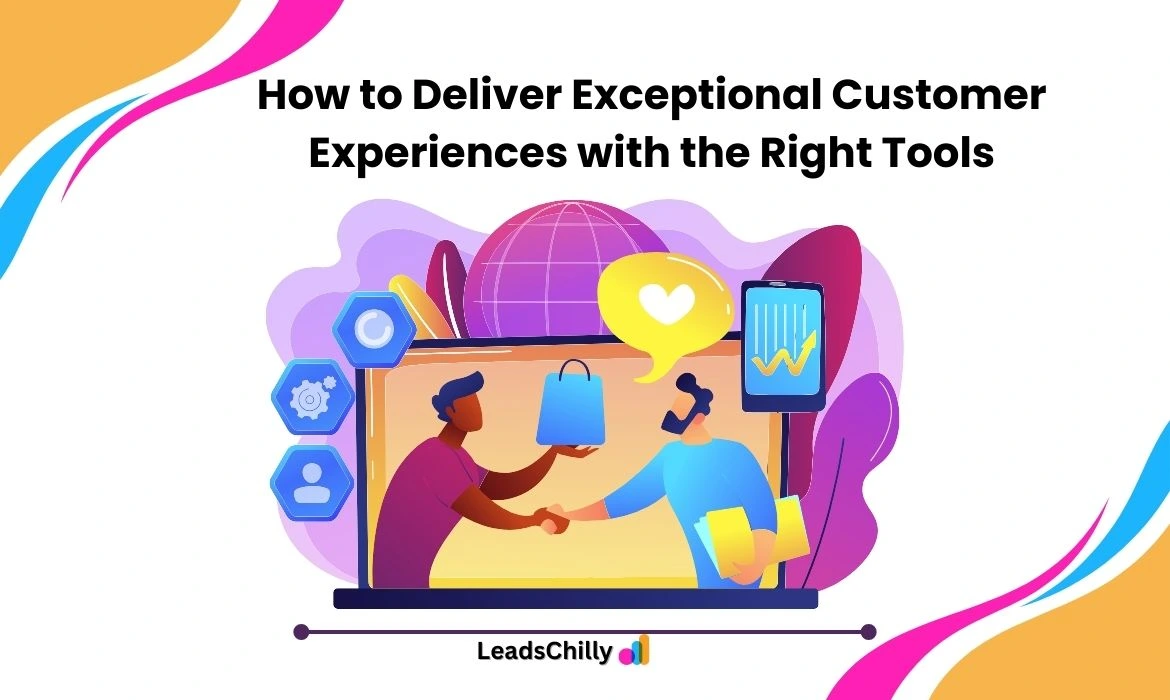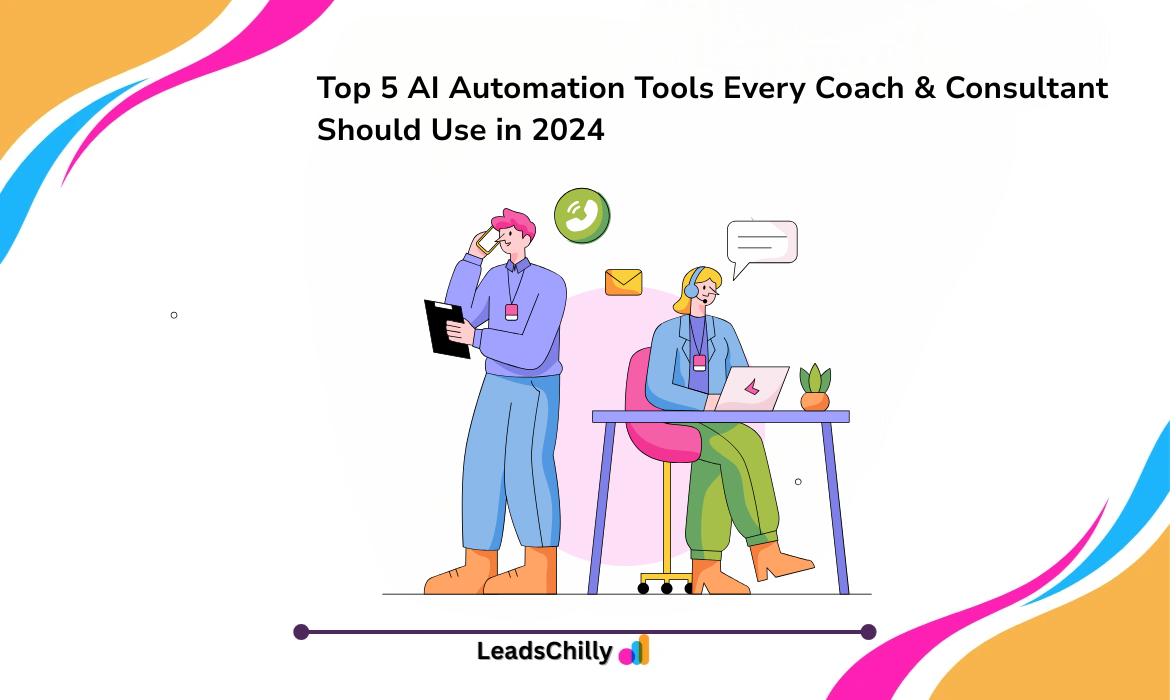CRM experience refers to how effectively a business uses its Customer Relationship Management system to manage and enhance customer interactions throughout their journey. In 2024, 86% of customers are willing to pay more for a better experience, and companies prioritizing CRM systems see 23% higher revenues (source). It enhances the entire customer journey, helping businesses deliver personalized, timely, and efficient experiences.
With the right CRM tools, like LeadsChilly, your business can streamline operations, improve customer satisfaction, and increase loyalty. But how can you ensure you’re getting the most out of your CRM? Let’s explore how a CRM, such as LeadsChilly, can transform your customer experience.
Understanding CRM Experience and Its Importance
CRM stands for Customer Relationship Management. It’s a system that helps businesses manage interactions with customers and prospects throughout the entire customer lifecycle. However, the term “CRM experience” extends beyond just the technical tools—it refers to the overall impact a CRM has on customer relationships and satisfaction.
Why is CRM Experience So Important?
Personalized Interactions
A CRM lets you store important customer data, such as previous purchases, preferences, and communication history. This helps you tailor your interactions to each customer, creating a more personalized experience.
Efficient Customer Support
With CRM tools, businesses can respond to customer inquiries faster and more accurately, enhancing customer satisfaction.
Data-Driven Decisions
CRMs collect valuable data that can be used to analyze trends, customer behavior, and preferences, enabling businesses to make more informed decisions that enhance the customer journey.
Improved Customer Retention
A well-managed CRM system makes tracking customer satisfaction and loyalty easier, allowing businesses to focus on retaining valuable customers.
Key CRM Features That Enhance Customer Experience
Not every CRM system is created equal. The right CRM features can significantly improve customer experiences and streamline processes within your organization. Below are some key features to look for when choosing a CRM that boosts customer satisfaction.
Top CRM Features That Matter:
Automation Tools:
Automating tasks like sending follow-up emails, generating reports, or updating customer records helps reduce manual work, allowing employees to focus on more meaningful customer interactions.
Omnichannel Communication:
CRMs should support communication through multiple channels, including email, phone, social media, and live chat. This ensures you can meet your customers where they are and keep the communication consistent.
Customer Data Insights:
A good CRM system provides valuable insights into customer behavior. Analytics dashboards help you monitor trends, customer preferences, and more, enabling better decision-making.
Real-Time Customer Support:
Providing real-time support through a CRM system is crucial for delivering fast and efficient customer service. Integrated chatbots and ticketing systems help solve customer issues in record time.
Customizable Dashboards:
Personalize your CRM’s dashboard to focus on the KPIs that matter most to your business. This enables your team to quickly access the most relevant customer data and improve response times.
Best Practices to Optimize CRM for Superior Customer Experience
Merely having a CRM is not enough; you need to use it effectively to improve the customer experience. Here are some best practices that can help you get the most out of your CRM system.
Best Practices to Maximize CRM Performance:
- Clean Your Data Regularly: Ensure that your CRM data is up to date and accurate. Clean data helps businesses make more informed decisions and reduces the risk of targeting the wrong customers with irrelevant information.
- Segment Your Customers: Use your CRM to group customers based on their buying behavior, preferences, and other factors. This makes it easier to send targeted marketing messages that resonate with different customer groups.
- Integrate with Other Tools: A CRM that integrates with your other business tools (like email marketing platforms, social media, and e-commerce systems) provides a seamless workflow and maximizes efficiency.
- Train Your Team: A CRM is only as good as the people using it. Ensure your team is well-trained in using the CRM to its full potential. Proper training leads to higher user adoption and better customer experiences.
- Personalize Customer Journeys: Use your CRM to personalize each customer interaction. This can range from addressing them by name in emails to recommending products based on their purchase history.
CRM Experience Across Industries
CRM systems are versatile and can be adapted to serve a wide range of industries. While the core features remain the same, different industries use CRMs to address specific customer challenges.
How CRMs Are Used in Various Sectors:
- Retail: Retailers use CRMs to keep track of customer purchases, preferences, and browsing history. This data allows them to offer personalized product recommendations and send targeted promotions, improving customer retention.
- Healthcare: In healthcare, CRMs manage patient records, appointment scheduling, and follow-ups. They improve patient care by offering timely reminders and streamlining communication between patients and healthcare providers.
- Real Estate: Real estate agents use CRMs to manage client relationships, track property listings, and automate follow-up communications. This helps agents provide personalized services to their clients.
- Financial Services: Banks and financial institutions use CRMs to track customer portfolios, manage client relationships, and provide timely advice based on customer needs.
User Experience in CRM Platforms
The user experience (UX) of a CRM platform is crucial for its success. If a CRM is too complex or hard to use, teams are less likely to use it effectively, leading to missed opportunities and poor customer service.
What Makes a CRM User-Friendly?
- Intuitive Interface: A clean, easy-to-navigate interface reduces the learning curve and increases the likelihood of team members using the CRM regularly.
- Mobile Accessibility: Many CRMs offer mobile apps, enabling employees to access customer data and respond to queries while on the go.
- Customizable Views: A CRM should allow users to customize their dashboards to show the data they need most frequently. This personalization enhances productivity.
Choosing the Right CRM to Elevate Customer Experience
Choosing the best CRM for your business can be overwhelming with so many options available. Here are the main factors to consider when selecting a CRM to elevate your customer experience.
What to Look for in a CRM:
- Scalability: Choose a CRM that can grow with your business, handling more data and users as your customer base expands.
- Ease of Use: Select a CRM with a user-friendly interface that your team can adopt quickly.
- Integration Capabilities: Your CRM should seamlessly integrate with other software your business uses, like email marketing tools, sales platforms, and social media.
- Customer Support: Opt for a CRM provider that offers robust customer support, especially during the initial setup and integration stages.
The Role of CRM in Improving Employee Experience
While CRMs are known for improving customer relationships, they also benefit employees by making their jobs easier and more efficient.
How CRM Benefits Employees:
- Automation of Routine Tasks: Employees spend less time on administrative tasks like data entry, allowing them to focus on higher-value work such as building relationships with customers.
- Better Collaboration: CRMs provide a shared platform where team members can access the same customer information, improving collaboration between departments.
- Increased Productivity: By streamlining processes and providing easy access to customer data, employees can work more efficiently and with greater confidence.
Future Trends in CRM and Customer Experience
The world of CRM is constantly evolving, with new trends emerging that promise to further enhance customer experience.
Emerging CRM Trends to Watch:
- AI-Powered CRMs: Artificial Intelligence (AI) is being integrated into CRM systems to predict customer needs, automate responses, and provide deeper insights into customer behavior.
- Voice Technology: Voice-activated CRMs are becoming popular, allowing employees to update records or retrieve information using voice commands.
- Hyper-Personalization: With more data available, CRMs are moving towards hyper-personalization, where customer interactions are tailored down to the most specific details.
Common Challenges in Improving CRM Experience
While CRM systems offer immense benefits, businesses often face challenges when trying to improve their CRM experience.
Challenges You Might Face:
- Data Silos: If customer data is not integrated across systems, it can lead to incomplete views of the customer.
- User Adoption: If a CRM is too complicated, team members may resist using it, resulting in wasted resources.
- Data Overload: Too much data without proper analysis can overwhelm teams, making it difficult to extract meaningful insights.
Conclusion
CRM systems are invaluable tools for delivering superior customer experiences. By leveraging the right CRM features, following best practices, and staying ahead of industry trends, businesses can ensure lasting customer satisfaction and loyalty. Whether you’re in retail, healthcare, or finance, a platform like LeadsChilly offers the perfect solution for enhancing your customer relationships.
Note: Ready to take your CRM experience to the next level? Sign up for LeadsChilly’s 14-day free trial today and see the difference it can make!
Frequently Asked Questions
CRM stands for Customer Relationship Management. It’s important because it helps businesses manage customer interactions, personalize communication, and improve overall customer satisfaction.
CRM automation takes care of repetitive tasks, such as sending follow-up emails or updating records, freeing up time for employees to focus on more meaningful customer interactions.
CRMs are beneficial in a wide range of industries, including retail, healthcare, real estate, and financial services, where they help manage customer interactions and improve retention.
Look for a CRM that is scalable, easy to use, integrates with your existing tools, and offers good customer support.
Yes, CRMs improve employee experience by automating routine tasks, enhancing collaboration, and making customer information easily accessible.




Comments are closed.